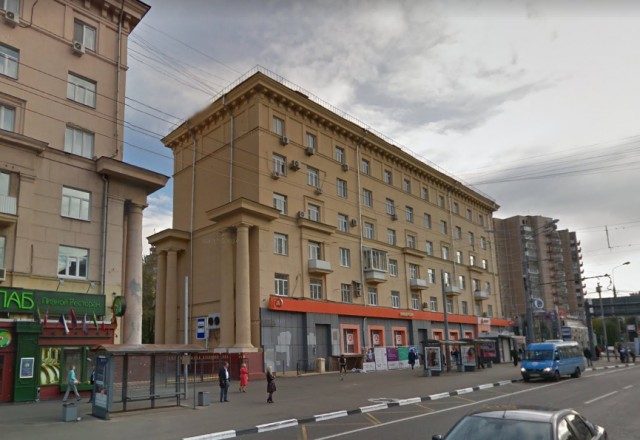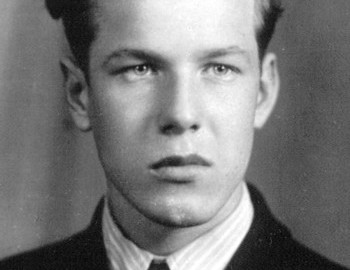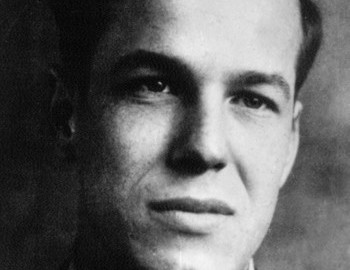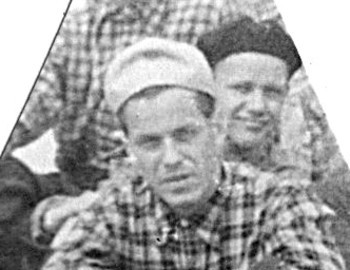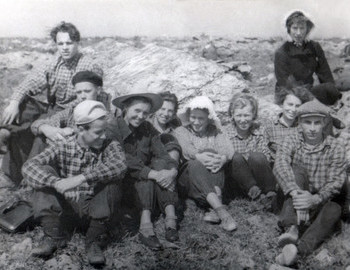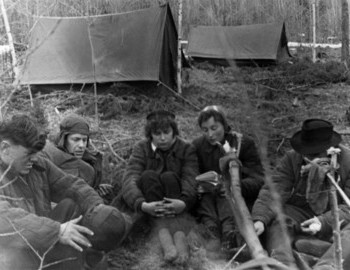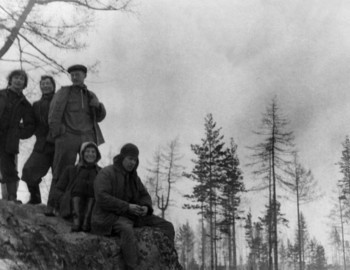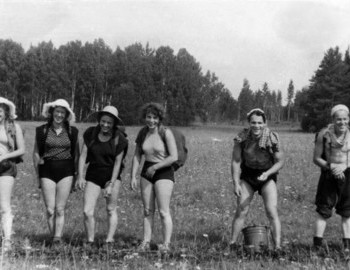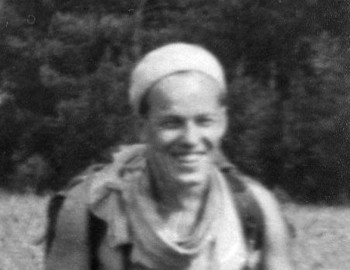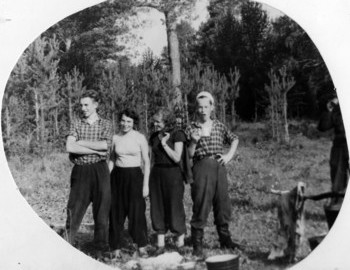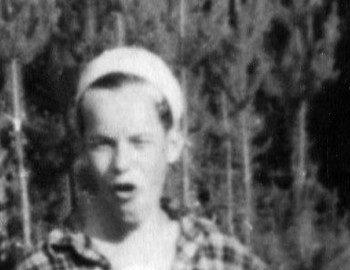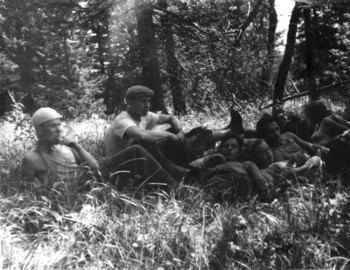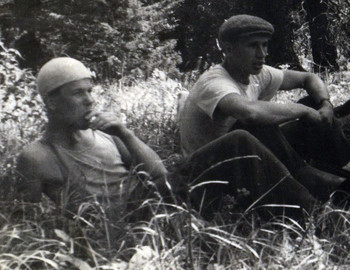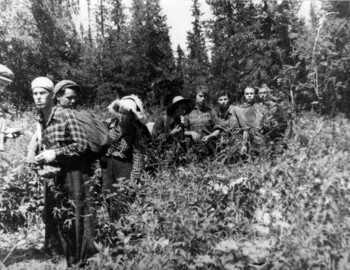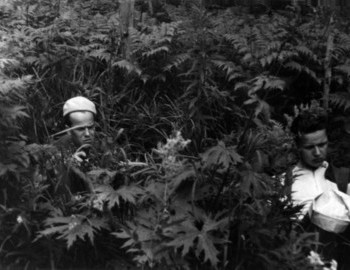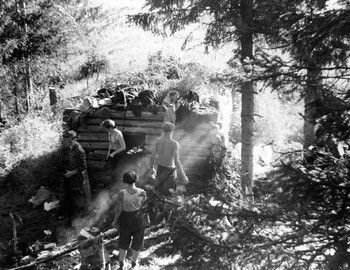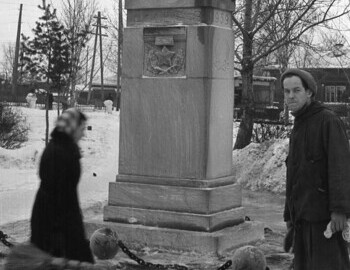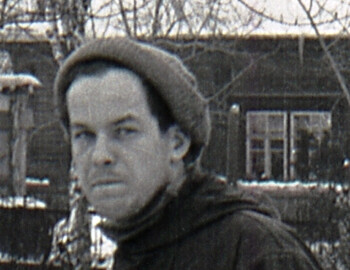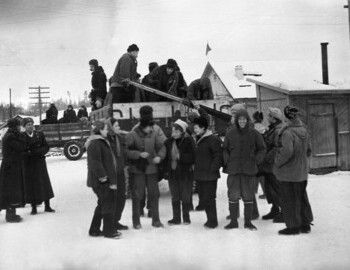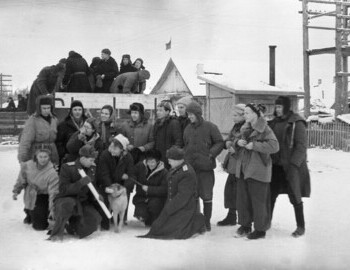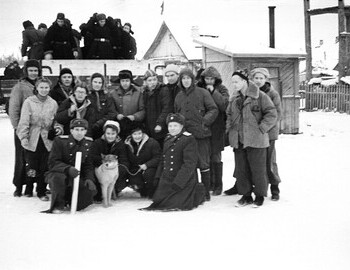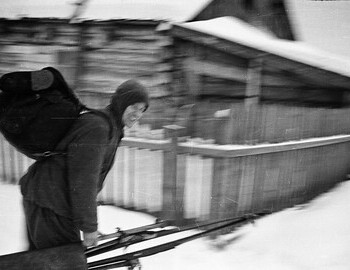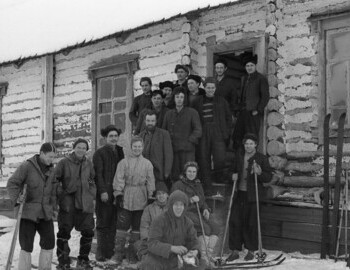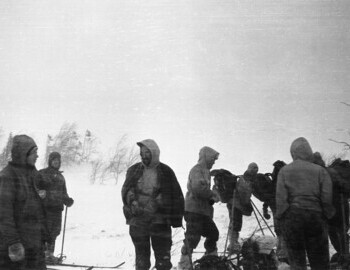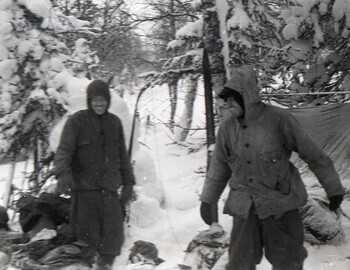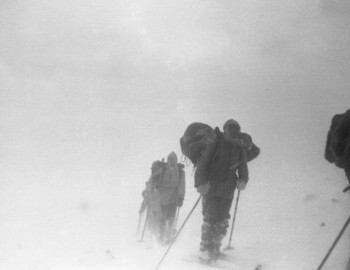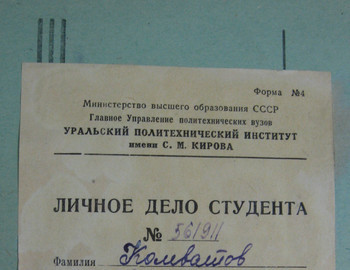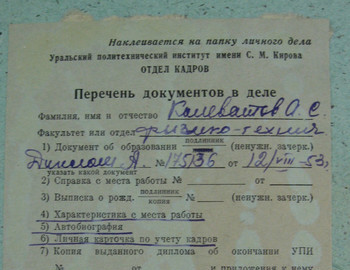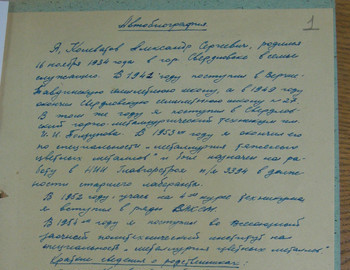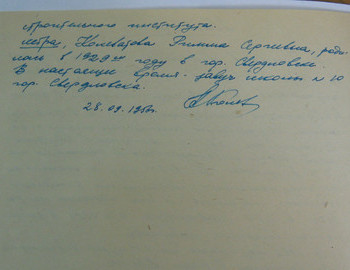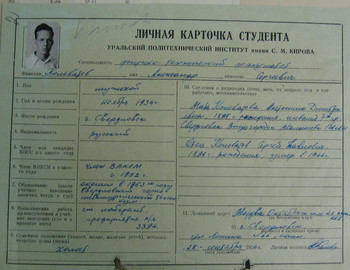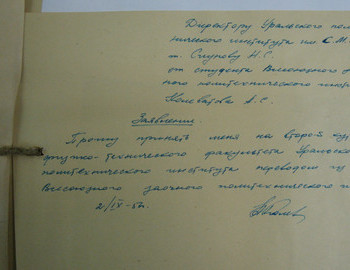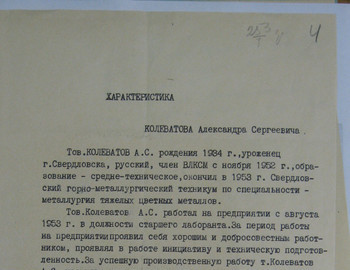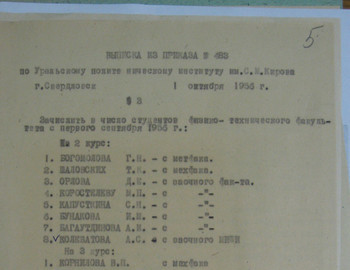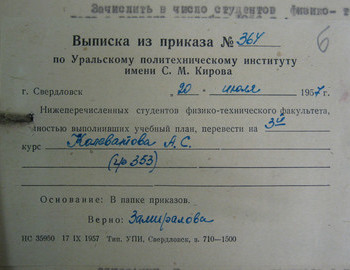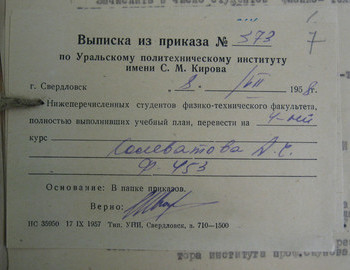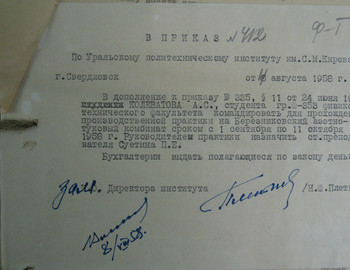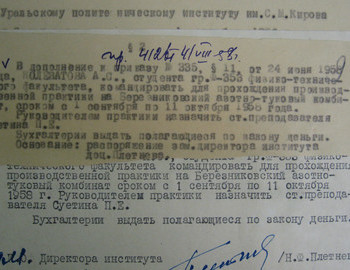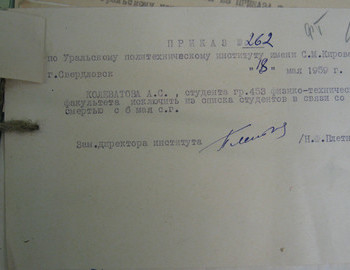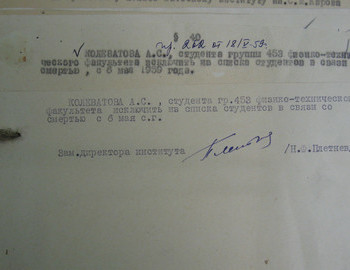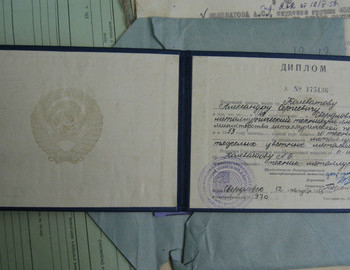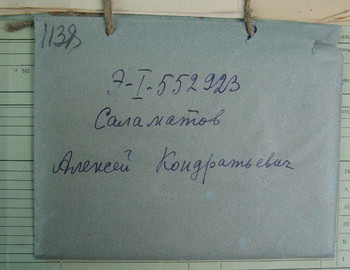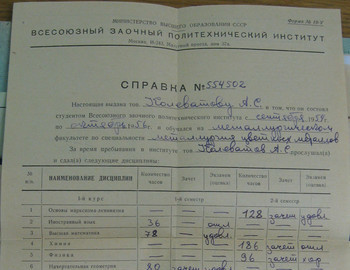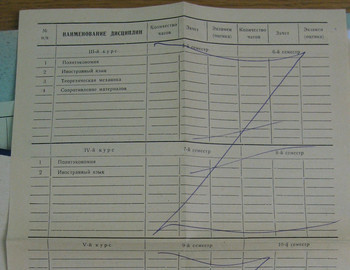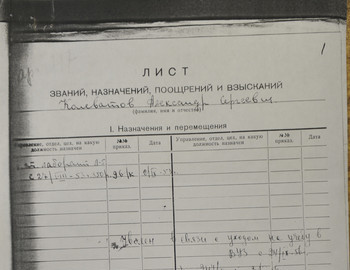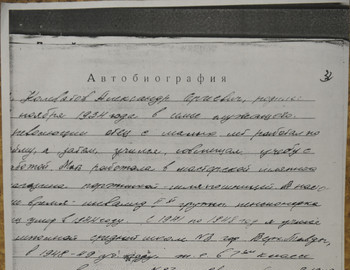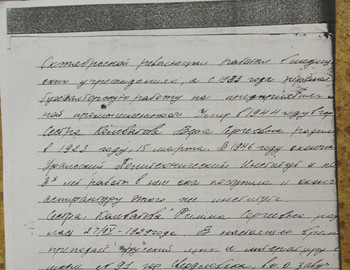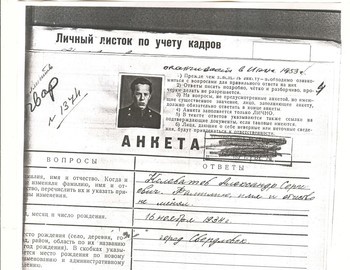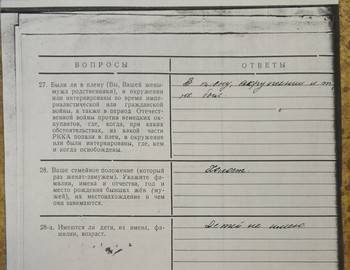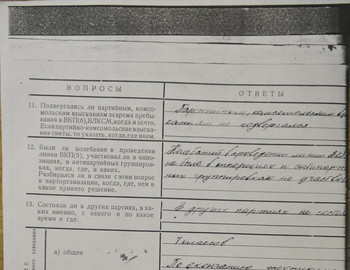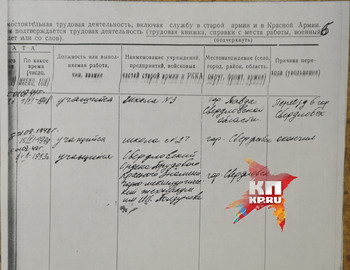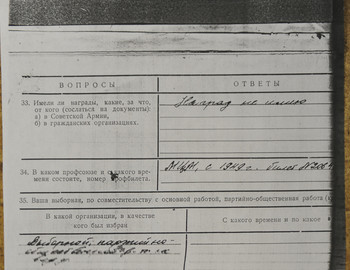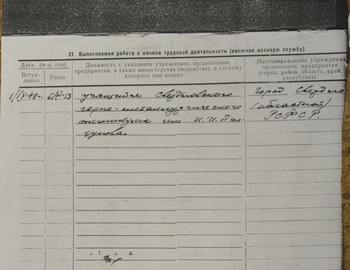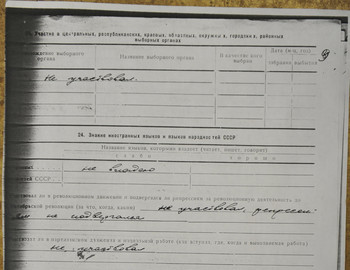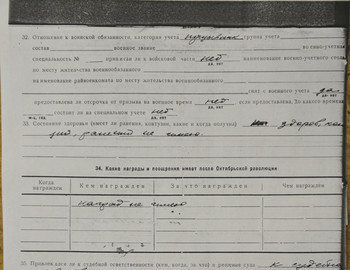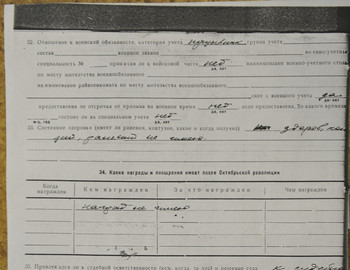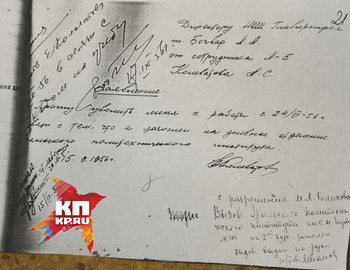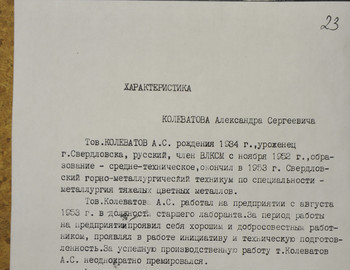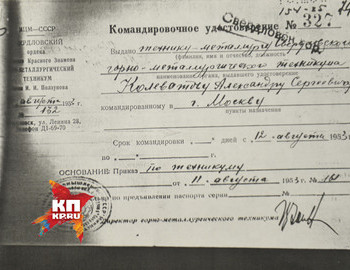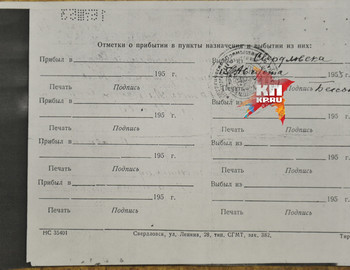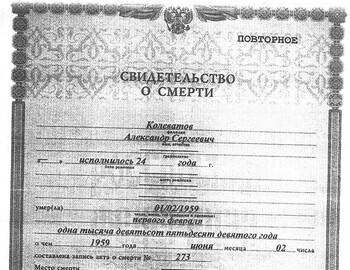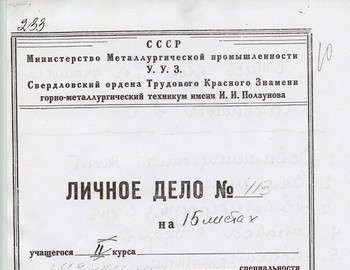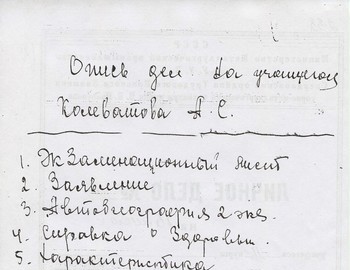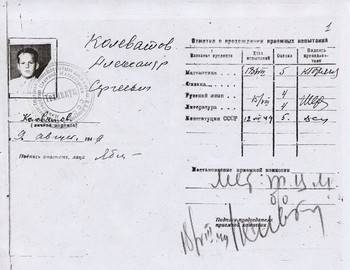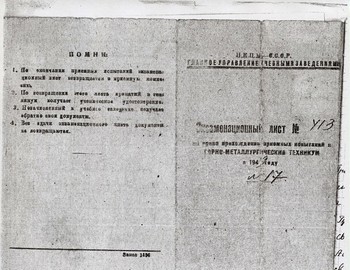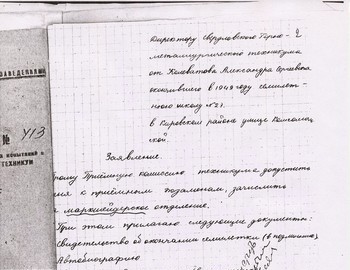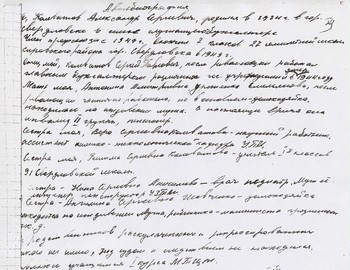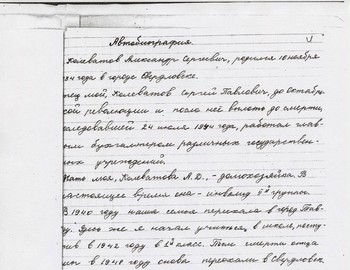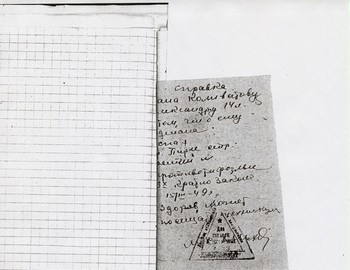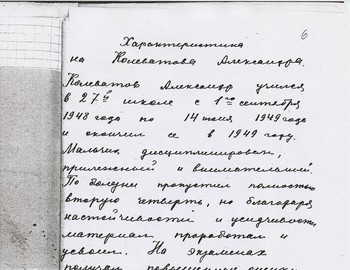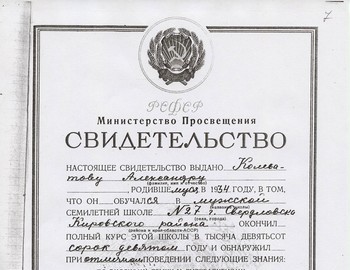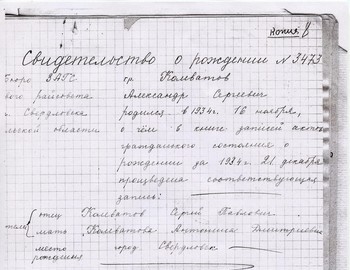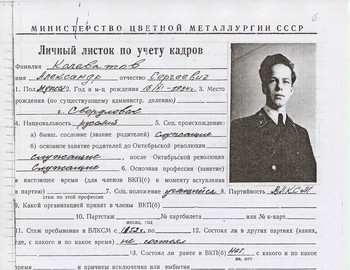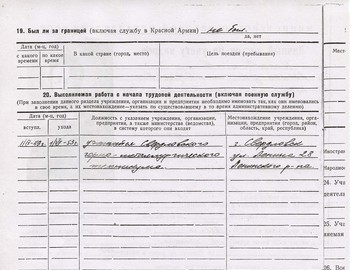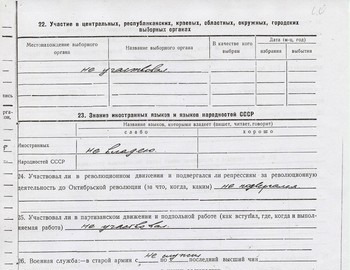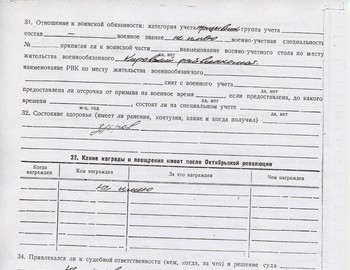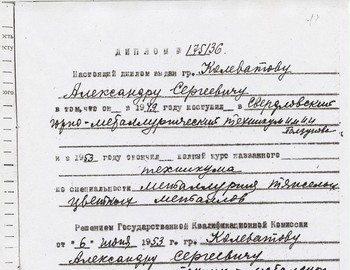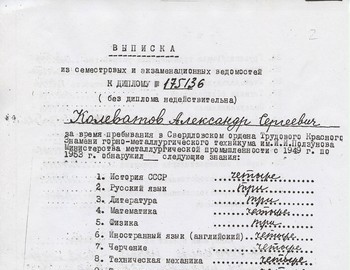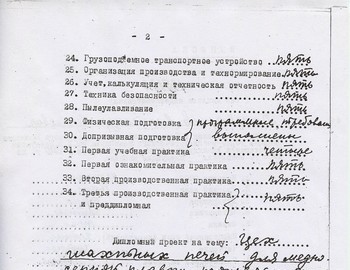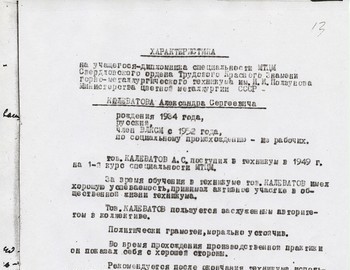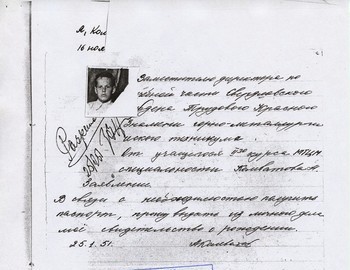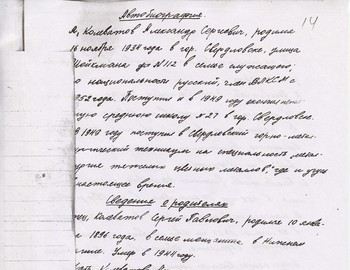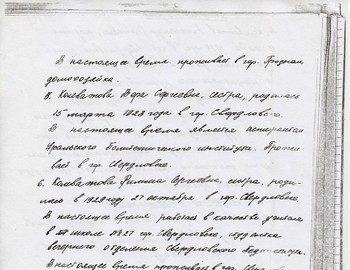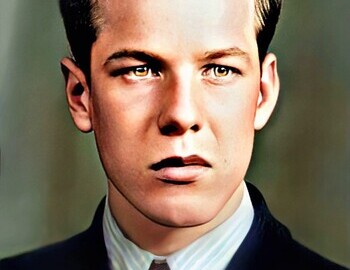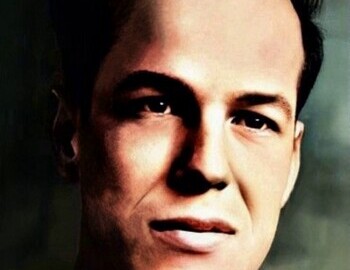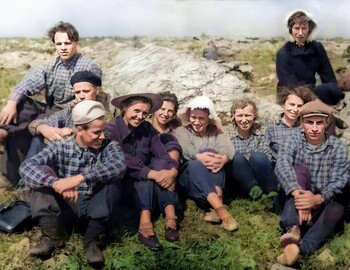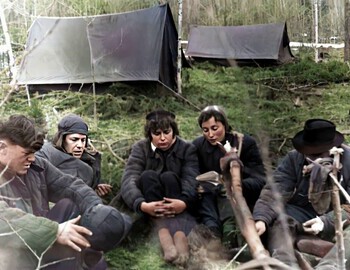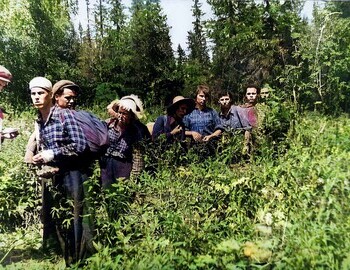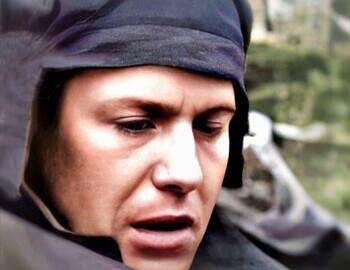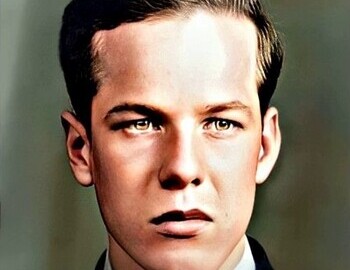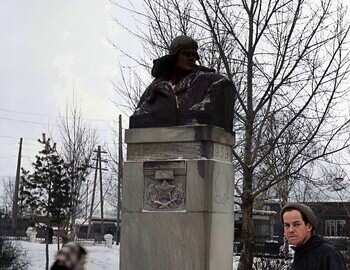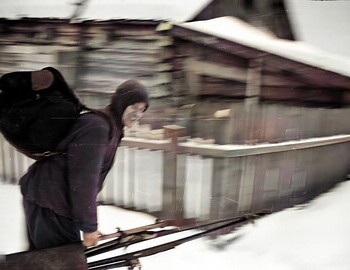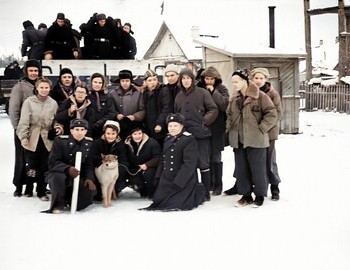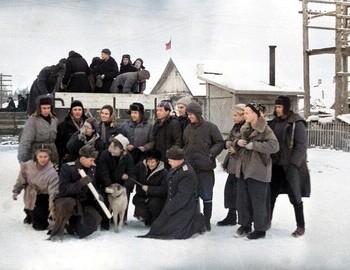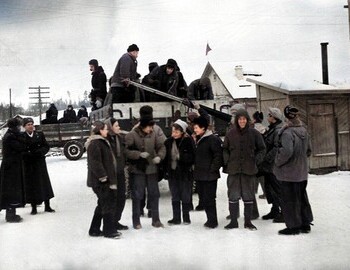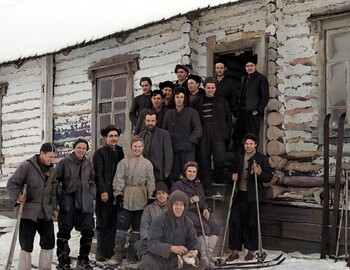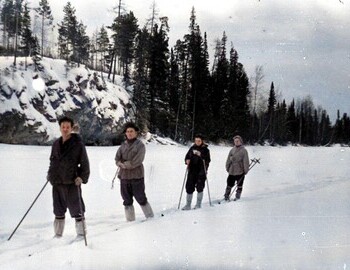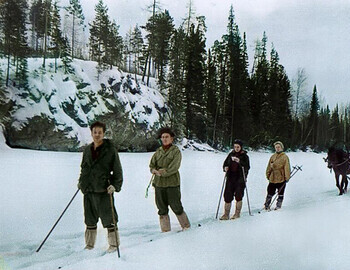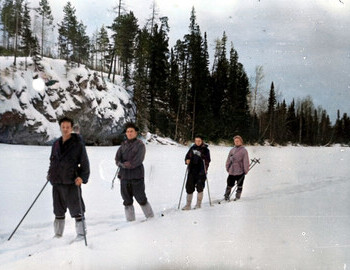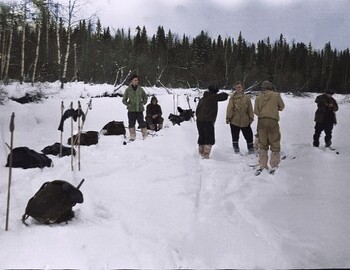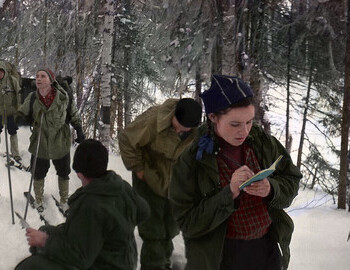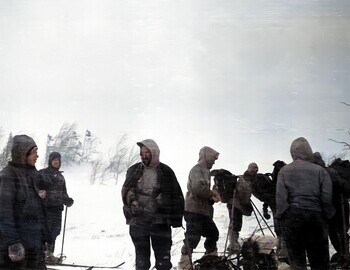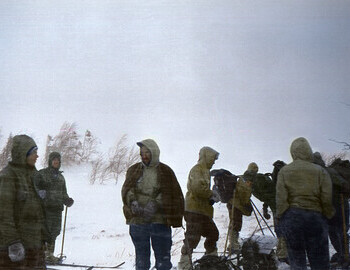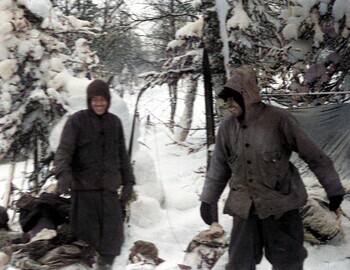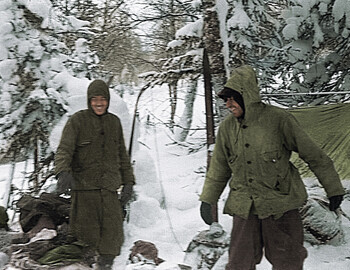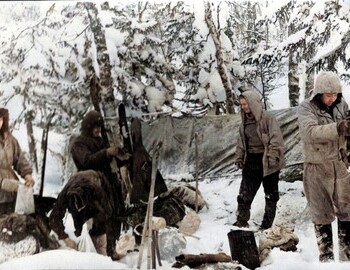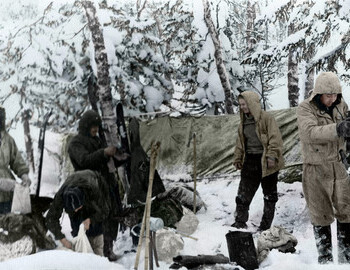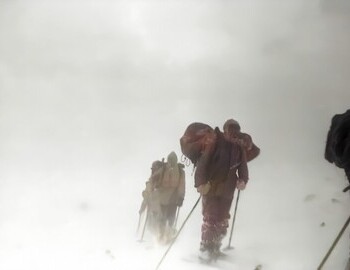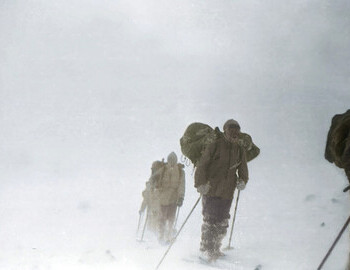
Aleksander Kolevatov
This is a recount of Galina Sazonova, Dyatlov group researcher, on the life of Aleksander Kolevatov.
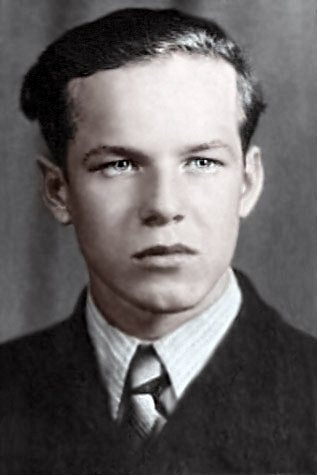
Born on 16 Nov 1934, in Sverdlovsk. A student of nuclear physics, he was a 4th year student as a Physics Major at the UPI University.
The 5th or 6 children (a girl born after him died in childhood) and he is the only boy in the family. Sasha had poor health as kid, all his sisters loved him very much. They lived in a private house in the center of Sverdlovsk, his father had a very good position - financial director (главный бухгалтер) of some factories. The people like his father will have been killed first in 1937. His father was not, in 1938 he moved to Gulag as a financial director of one of the factories in Tavda. The whole family moved to this place too. Maybe this decision saved his life. In Gulag, but not prisoner. Of course he was a member of elite group there, but surroundings of his family changed a lot. Guardians are different from prisoners only because they can kill. Prisoners can be killed.
Sasha didn't go to school, his elder sister Rimma took care of him. She will become a famous teacher in the future, developing a special education programs for kids with behavior problems.
1941 - war started. The camp in the Gulag where Kolevatovs stay became on of the first camps for Germans and one of the most horrible ones. But it still "ok" for Kolevatov's family if it possible to say "ok" in this situation. At least they had food enough to survive.
Suddenly everything crashed. His father was found dead on the railway line killed by a train. No investigation of his death has been done. What did this mean for his family? They lost everything. The three elder sisters had already left Tavda but Sasha, Rimma and their mother remained in the camp. They lost social position immediately, but more importantly - there was no more food. The mother was sick and couldn't work. All of them rely on food coupons: 200 g bread per day per person, 1.2 kg of fish or meat per month per person, 1-2 kg of grain per month which can be change for potato during winter season. They went to a hell. Sasha was almost 10 years old. How did he survived this situation?
Only after the war ended they all came back to Sverdlovsk. Rimma has been admitted to work as a teacher in the primary school where Sasha went. All of them shared one small room in the institute campus which Rimma got as a student. They were very poor. Sasha didn't have good grades. He had high score in German language only. How come he knew German and English well? No idea. May be he communicated with a German prisoners in the Gulag. He graduated secondary school (grade 7) and went to college. College provided not only professional skills, but uniform and additional food card. He didn't study well the 1st and 2nd year. And then suddenly something changed in him - he joined the Komsomol and improved all his studies and grades.
Education in the USSR was free of charge, but each graduate was required to work for 3 years after graduation in nominated place. Someone decided to send him to Moscow to work in the secret institute of the Ministry of Medium Machine Building. This decision was made almost a year before the graduation from college. We know that six months before the graduation, he had already passed a security check in Moscow and was approved.
Ordinary boy from ordinary college with ordinary performance. Someone recommended, protected and advised him. First advice was to immediately join the Komsomol - Young Communist League. It was the final stage of three youth organizations with members up to age 28, graduated at age 14 from the Young Pioneers.
You couldn't join the Kommunist Party without passing all the stages. You couldn't make a career without being a communist.
All members of Dyatlov's group joined Komsomol at age 14, as soon as it was allowed. Sasha - at age 18, during passing a security check "in the secret institute".
What do we know about his life in Moscow?
- His salary was about 900-1000 rubles per month, while the average wage in the USSR was 600-700 rubles, the scholarship - 250-350 rubles per month.
- He got free housing in a new building which well-known scientists also lived. Moscow was a closed city and no one could come to live there.
Where Kolevatov lived is today one of the most prestigious areas of Moscow with very expensive apartments.
He worked very well, and was very active in the social life of the institute. He became a member of Institute Komsomol committee, leaded shooting sport section. Began to engage in hiking, made new friends.
Duality and different assessment of his job position. Of course he has not been a "leading scientist", but for the 19 year old boy who just graduated ordinary college he had a very good position and he was involved to some scientific research. Did he have access to classified information? Was he a "secret keeper" working in Secret Institute?
Sasha hiked the mount Sablya (Sabre, Cабля), Pre-Polar Ural, as a member of a Moscow group. This is a difficult trek.
I was just interested in finding information about this hike. Everything was structured in USSR and I was trying to find the club that could organize this trek. I couldn't. Then I thought - there is no information about ordinary groups, maybe it was not an ordinary one? May be it was a group of "secret keepers" who had restrictions on contacts and did not belong to any ordinary sports organization? I began to look for memories about hiking of people who belonged to this category. I found the memories of a scientist about how they wanted to be engaged in hiking and then the director of a secret organization helped them organize a hiking section outside the ordinary sports clubs.
The director who supported this section was Dmitriy Ivanovich Blohincev - soviet physicist, doctor of physical and mathematical sciences (1934). Corresponding Member of the Academy of Sciences of the USSR (1958) and the Academy of Sciences of the Ukrainian SSR (1939). Professor of Moscow State University (1936). Hero of Socialist Labor (1956). Winner of the Lenin (1957), Stalin (1952) and State (1971) awards. One of the founders and director of the IPPE (1947-1956) and JINR (1956-1965). Member of the Bureau of the Department of Nuclear Physics, USSR Academy of Sciences (1971-1979). President of IUPAP (1966-1969). Member of the Higher Attestation Commission at the Council of Ministers of the USSR. Advisor to the Scientific Council under the UN Secretary-General (since 1967).
I changed direction of my research a finally found the leader of that group. All members of the group worked in secret nuclear Institutes. Two of them (including the leader) were "children to their fathers":
The father of leader is... Blohincev Dmitiy Ivanovich
The father of second one - Anatoly Alexandrov
It was a top of the very closed scientific secret elite, and Sasha was accepted.
Duality. Why did he leave Moscow?
Source: Galina Sazonova
Read Alexei Rakitin's version on Kolevatov's decision to leave Moscow and transfer back to Sverdlovsk.
Dyatlov group seem to have celebrated Aleksander Kolevatov's birthday on Jan 30 - his present was a tangerine, which he readily distributed among his friends. This is taking place 2 days before they all perish in the treacherous Ural mountain in 1959.
He was 24 years old when he died. Kolevatov was laid to rest on May 11, 1959, in Mihaylovskoe cemetery, Yekaterinburg, Sverdlovsk Oblast, Russia. Funerals May 1959 →
Personal archive
1959
Aleksander Kolevatov documents
Aleksander Kolevatov personal file
Aleksander Kolevatov personal file from college
Aleksander Kolevatov in color

